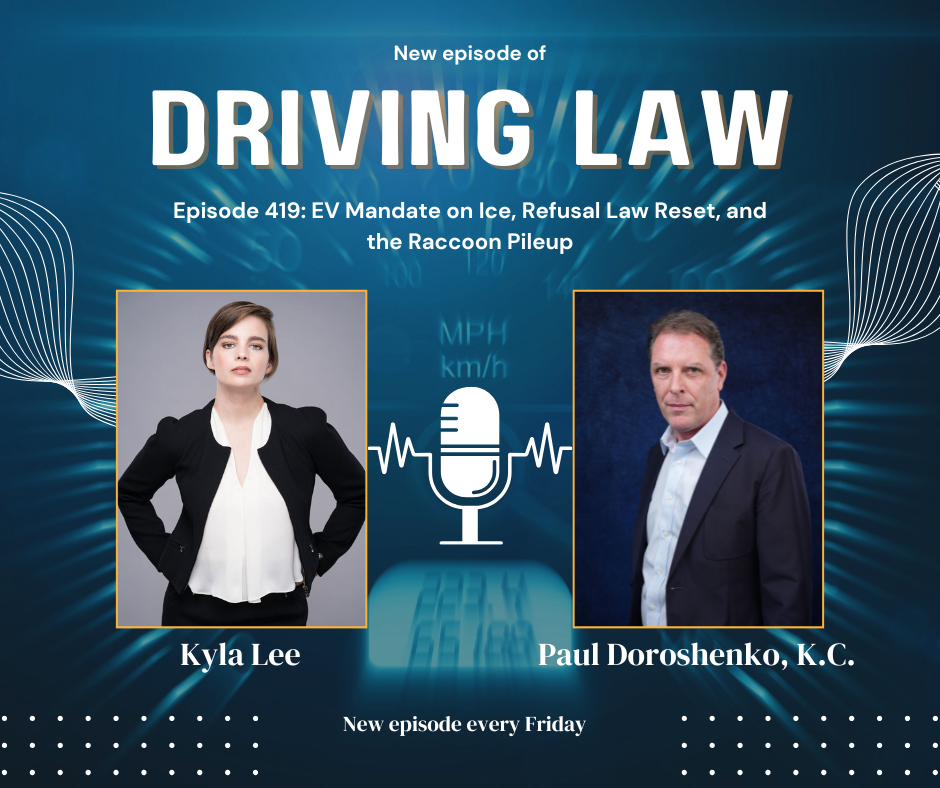This week on Driving Law, Kyla Lee and Paul Doroshenko explore the federal government’s pause on Canada’s electric vehicle mandate, a major refusal ruling from the Saskatchewan Court of Appeal, and an Ontario case reshaping access to counsel in the digital age. They finish with a Ridiculous Driver of the Week that proves raccoons can cause more than just mischief.
The episode begins with Ottawa’s decision to halt the 2026 electric vehicle sales mandate for review. The move follows pressure from North American automakers and comes at a time of volatile trade relations with the United States and tariff battles with China. Kyla and Paul discuss what the pause means for drivers, auto manufacturing, and the future of climate and fuel policy. They also look at how new investments in canola biofuel may signal a shift in direction for Canadian energy priorities.
Next, they turn to the Saskatchewan Court of Appeal’s decision in R v Emeruwa. The court made clear that a refusal charge requires proof of intent to avoid providing a breath sample. A failed test alone is not enough. The ruling reinforces long-standing criminal law principles and rejects the Crown’s view that amendments to the Criminal Code had lowered the standard.
The episode then moves to Ontario where a trial judge found that a person’s right to counsel was violated after police denied her meaningful internet access to locate a lawyer of her choice. The court emphasized that in the modern era, offering outdated directories is not enough. Denying access in this way undermines the accused’s right to counsel and can prevent the act of refusal from being made out at all.
Finally, the Ridiculous Driver of the Week comes from Ontario where a three car pileup was blamed on raccoons. The discussion touches on past cases involving wildlife related crashes and the tricky balance between protecting animals and ensuring the safety of other road users.
Driving Law continues to deliver sharp analysis of legal developments while reminding listeners that the world of traffic law can be both serious and absurd.
